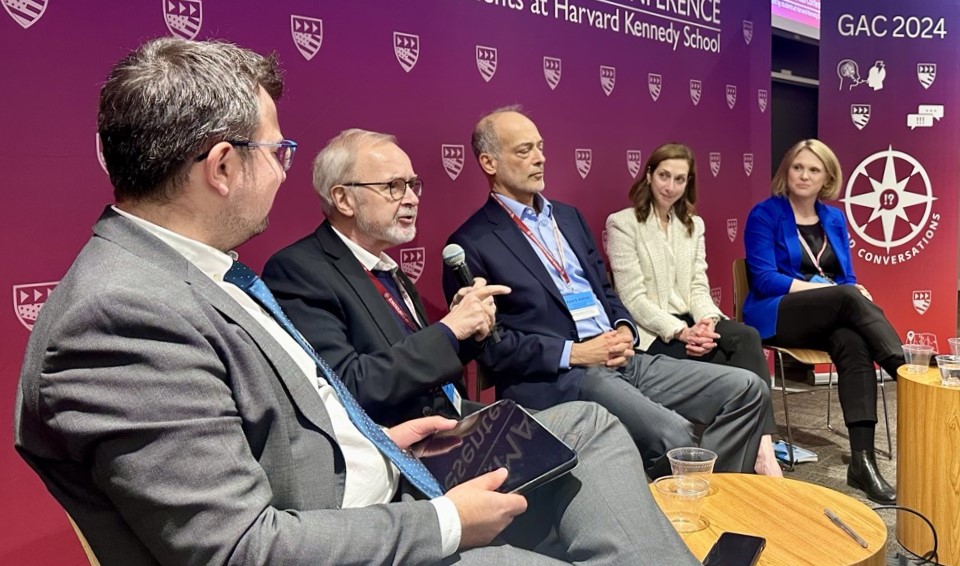Event Summary
2024 Harvard German-American Conference

Dr. Hoyer speaks at the 2024 German-American Conference
Between November 15th and 17th of 2024, the German-American Conference at Harvard University celebrated its 16th iteration to discuss the most important topics of the day in transatlantic affairs. The Friedrich Naumann Foundation’s North America Office had the pleasure of acting as a conference sponsor, as well as hosting Dr. Werner Hoyer, President of the Institute for European Policies and former President of the European Investment Bank, who took part as a panelist for several of the scheduled events.
The conference, organized by students at the Harvard Kennedy School, is the largest of its kind in North America and one of the longest-running at the university. Including foreign dignitaries, policymakers from both sides of the Atlantic, industry representatives, and expert analysts from a variety of backgrounds, it offers a forum for lively exchange on matters of import — this year concerning, among other things, the security alliance between the United States and Europe in light of the war in Ukraine and mounting systemic competition with China, Germany’s efforts to re-shore its defense and industrial apparatus under the Zeitenwende rubric, the prospects for economic growth and technological innovation in Germany, the development and implications of artificial intelligence, the challenges on the path towards a transition away from energy dependency, and the future of the transatlantic relationship under the incoming American administration.
Dr. Hoyer participated as a speaker in two separate engagements. On the panel “Start Me Up: Does Germany Fail to Spark the Next Tech Revolution?,” the regulatory and investment landscape facing European start-ups was considered in comparative perspective to that of the United States, with speakers discussing how to ease the burdens standing in the way of economic dynamism and innovation. Meanwhile, the panel on “Economic Power Plays: Geoeconomics in a Shifting Global Order” honed in on the use of economic tools as extensions of statecraft, with a focus on resource control, industrial strategy, and competition practices in states’ geopolitical repertoires, again paying special attention to the systemic opposition between Western allies and the PRC, as well as to the uncertain future of export-intensive Germany in this emerging context.
All in all, the GAC was marked by a remarkable sense of vitality; although the awareness of the challenges on the road ahead was acute, both speakers and attendees were able to engage in friendly, but frank dialogue so as better to contribute towards the construction of a discerning and strategic way forward.
